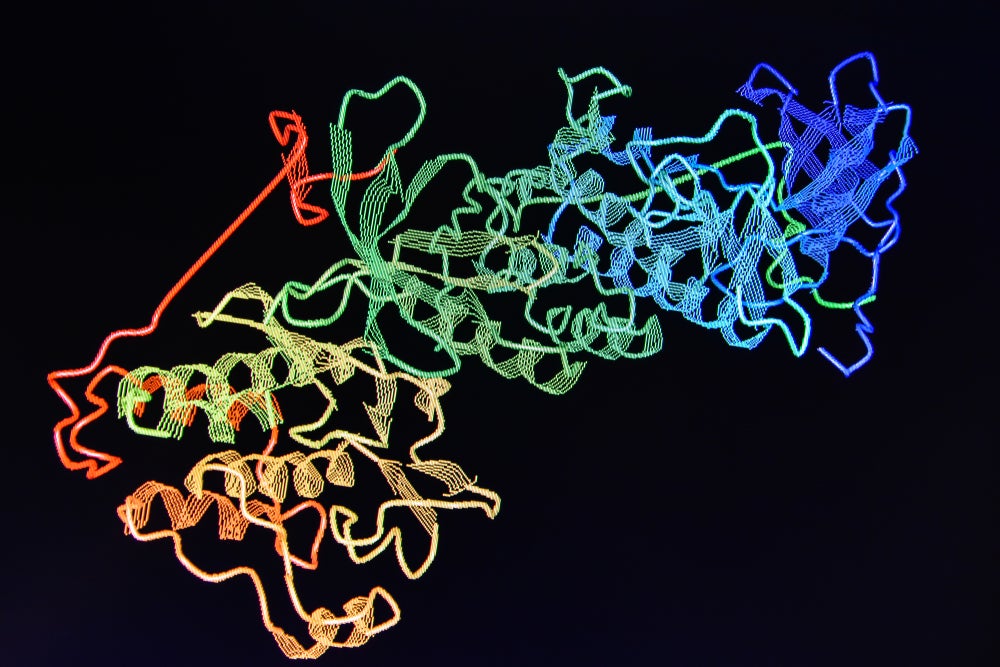
Rare disease-focused PTC Therapeutics has entered into an agreement to acquire Massachusetts-based Censa Pharmaceuticals. The deal centres around Censa’s lead product CNSA-001, an investigational therapy for rare metabolic diseases associated with defects in tetrahydrobiopterin (BH4) biochemical pathway, including phenylketonuria (PKU).
According to the terms of the deal, which has been approved by the boards of both companies, PTC will pay $10m in cash and up to 850,000 shares of PTC common stock to Censa. In addition, Censa may be eligible for up to $21.75m in development and regulatory milestones for its two most advanced programmes for CNSA-001: PKU and primary BH4 deficiency.

Discover B2B Marketing That Performs
Combine business intelligence and editorial excellence to reach engaged professionals across 36 leading media platforms.
In addition, Censa will be eligible for $30m on the completion of enrolment of its Phase III clinical trial for CNSA-001 for PKU, as well as $109m in milestone payments for each additional indication of CNSA-001 and net sales milestones of $160m.
The transaction is expected to close in the fourth quarter of this financial year, following the fulfilment of necessary closing conditions.
Exploring the promise of CNSA-001 in PKU
CNSA-001 is an oral formulation of synthetic sepiapterin, which is a precursor to intracellular BH4, an enzymatic co-factor involved in the synthesis of numerous metabolic products, including phenylalanine hydroxylase.
Censa CEO Jonathan Reis notes: “CNSA-001 crosses the cell membrane and the blood brain barrier as a functional co-factor generating more BH4 intra-cellularly, thereby providing greater levels of the required co-factor for proper enzyme function. CNSA-001 has the potential to address signs and symptoms of PKU patients.”

US Tariffs are shifting - will you react or anticipate?
Don’t let policy changes catch you off guard. Stay proactive with real-time data and expert analysis.
By GlobalDataPKU is caused by mutations in the phenylalanine hydroxylase (PAH) gene, which leads to a toxic build-up of phenylalanine in the brain.
The current standard of care for PKU is a lifelong strict, difficult-to-manage diet that restricts protein intake as these foods contain phenylalanine, as well as taking a special nutritional supplement that ensure patients get enough protein without phenylalanine.
“Whilst patients still must ascribe to a highly stringent diet, diet alone is insufficient to control the disease in a vast majority of patients,” says PTC chief business officer Eric Pauwels.
CNSA-001 met its primary and secondary endpoints in a Phase II study in PKU compared to current first-line treatment.
“It has demonstrated statistically significant differences in reduction of phenylalanine relative to existing treatment options,” Pauwels explains. “We saw the value in CNSA-001 as a clinically differentiated oral therapy that has the potential to address the majority of PKU patients whose condition is not adequately managed by current treatments. We believe there is a significant market opportunity to commercialise this globally, including outside the US.”
Diversifying into metabolic disorders
PTC has a long history in rare diseases and it has built a “robust multiplatform pipeline of transformative medicines, which currently spans gene therapy, splicing and biological engineering”, Pauwels notes. Examples include a gene therapy for aromatic l-amino acid decarboxylase (AADC) deficiency, biological engineering products for mitochondrial epilepsy, and splicing approaches for spinal muscular atrophy and Huntington’s disease.
The company has created much of this broad pipeline through various acquisitions – including BioElectronic Technology Corporation in 2019 and Agilis Biotherapeutics in 2018.
This approach helps PTC achieve its aim to “fundamentally change the course of rare diseases by addressing the underlying causes, not just the symptoms”, in the words of Pauwels. Censa is the most recent example of PTC’s business strategy and allows it to diversify into metabolic disorders, which fits in well with its existing rare disease pipeline.
In addition, Reis says PTC’s “heritage and established portfolio in rare disease drug development” is “accompanied by a global footprint with healthcare providers, clinical centres and patient advocacy groups in the area”, making “PTC a strong choice to take over late-stage development of CNSA-001. The acquisition will ensure that this promising compound becomes available to patients in the near future and fulfils a global unmet need.”
PTC Therapeutics: company overview and share price
Headquartered in New Jersey, rare disease-focused PTC Therapeutics was founded by CEO Stu Peltz over 20 years ago. The company went public in 2013, and is listed on the New York Stock Exchange. It has one approved drug, Translarna, which treats the nonsense mutation causing Duchenne muscular dystrophy; this drug remains investigational in the US, although it has been approved in the European Union.




